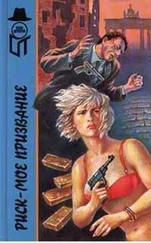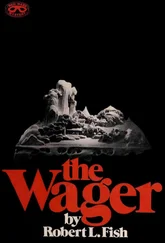“Then your Petticoat Lane must be pretty bad,” Andries said wryly. He reached out a hand; Barney took it, shaking it. “It was good having you along, boy,” he said. “I wish you luck.”
“Thanks,” Barney said. He stared at the wagon and the oxen; it had been his home for almost two months. He knew each animal by name, and he knew he would miss them, and miss Andries, too. The ox wagon and Andries had come to be like a second family on the long trek; the thought of not having the security of their presence, Andries and the oxen for their strength, the wagon itself for the sense of protection it gave with all the wonders it seemed to hold within it, even beyond the evident security of food and water, was a bit disturbing. Still, his brother Harry undoubtedly had far better things he could have the use of until he could establish himself and repay Harry. And speaking of repayment—
Barney reached for his purse. “I never paid you the five quid—”
Andries smiled, holding up his hand. “Keep your money. You earned it many times over. I’d never have made it over the mountains without you, boy.”
Barney’s smile widened. “Honest?”
“Honest.”
The smile faded. Barney hated to see the wagon move on. “Then maybe I ought to go with you and help you unload.”
“The men who own this load will be more than happy to unload it. No, you go find your brother.”
“I don’t even know where to start looking for him—”
“Try the bar in that hotel,” Andries said, and pointed.
“Harry don’t drink that much…”
“Other people do. They’ll help you find him.”
“Yeah,” Barney said. There wasn’t much he could do to keep the wagon from moving on. On a sudden impulse he said, “You’ve been a good friend, Andries.”
“No,” Andries said quietly. “If I’d have been a good friend I would have talked you out of Kimberley. If I’d have been a good friend, you would have been going back with me.” He raised his hand in a kind of salute. “Good luck,” he said again, and cracked the sjambok. The team lumbered away, with Barney watching. He stood and watched until the wagon had turned a corner and was out of sight among the tents there. Then, with a sigh, he picked up his bags and marched into the shack marked HOTEL.
To his surprise, despite the fact that the building was constructed totally of corrugated iron, the high ceiling made the place relatively cool. He looked about. The room boasted several tables; at one of them, a man was seated, eating. A door to the rear apparently led to the kitchen and to whatever rooms or outside hovels the “hotel” had available for guests. The bar itself lay along one wall and was simply a wide wooden shelf with empty liquor boxes stacked at intervals to serve as legs; five or six men stood along its length, drinking. It was a far cry from the King of Prussia, with its stained-glass windows, its ancient polished mahogany bar, and the warm, yeasty, friendly smell of beer. Barney set his bags down and walked to the bar. The bartender came over.
“What’ll you have?”
“I’m lookin’ for a fellow,” Barney said. “Name of Harry Isaacs.”
The bartender shook his head. “Don’t know him.”
There was a voice from further along the bar. “Sure you know him, Tim. The juggler bloke. The one does them comic songs, y’know, while he’s standin’ on his head. Hell, he’s in here almost every night.”
“Oh, him? Never did know his name.” He looked at Barney. “Come around about seven tonight. He’ll probably be here.”
“I’d like to find him now. He’s me” — Fay came to mind — “he’s my brother. Where does he live?”
The bartender shrugged. “No idea.” Barney looked down the bar. The men there looked at one another and shook their heads. “I think in one of them tents near the edge of town,” one of the men finally volunteered. He pointed. “Keep wandering down this road that way. Ask somebody when you get down there.”
“Tell them you’re looking for the juggler, the comic that sings at the Paris Hotel,” another said. “That way they’ll know who you mean.”
“Thanks,” Barney said. He picked up his bags and walked out into the street. He would have liked to leave his bags with the bartender, because he was sure his trip to the edge of town, down into that maze of tents, was going to be a wasted one. Harry, with all his money, had to be living in one of the better houses in town. But he wasn’t going to take a chance of having his bags stolen now, not after that two-month trek. The juggler? The comic that sang songs at the Paris Hotel? Probably having a little fun in the evening, once he’d made a pile during the day. Harry was like that.
He came out of the bar and started down the street, his bags banging against his legs. On either side of the street there were shops: provisioners, there a bank, and seemingly about every second shack bearing a sign declaring the occupant to be a diamond trader, offering the finest prices. Except that Barney noted that a lot of them were boarded over. Well, he had known there was a depression in the diamond business, but if Harry could make it big, so could he. He also noted that the streets seemed largely deserted, other than occasional women in long dresses and large sunbonnets doing their shopping. It was eerie, seeing all those shacks and all those tents and very few people, as if they’d all gotten disgusted and left. Like those kids what followed that bloke with the pipes, right into the sea.
The shacks ran out; the little organization that had been attempted in the central cluster of buildings gave way to the total disorganization of the tents. The road also seemingly ran out, and a trail led haphazardly between the canvas shelters. The smell here was even worse than it had been in the town itself; between two of the tents a pair of skinny, mangy dogs, their ribs showing, were snarling over what seemed to be the intestines of some animal. Barney wrinkled his nose in disgust and was about to turn back, sure that Harry could never exist in such filth; then he thought he had come this far and it would do no harm to ask.
He paused at a tent, putting down his bags and wiping the sweat from his forehead. Inside the open flaps a man was sitting disconsolately on the ground, putting his belongings into a small steamer trunk. His bedroll was already strapped shut and was leaning against the main tent pole. Barney cleared his throat; the man looked up.
“I already sold everything I’m goin’ to sell,” the man said. “All except the tent.” He saw Barney’s bags and brightened. “You want to buy a tent?”
“I don’t want to buy nothin’. I’m lookin’ for me brother, Harry Isaacs.” He remembered the suggestion at the bar. “The juggler, y’know. The comic that sings down at the Paris Hotel.”
“Oh, him? Three tents down. Almost the last one. Got a tear in one side, he almost lost it in the last sandstorm. Never got around to fixin’ it.” The man started to pack the trunk again, and then paused. “Say, like I said, I ain’t sold the tent, yet. Maybe he’d be interested; his ain’t no good. You could ask him.”
“I’ll do that,” Barney said, and backed away. It had to be somebody else, some other bloke who sang comic songs. But it sure sounded like Harry! He refused to even consider the thought that had come to him, but hurried down the line, almost dragging his bags. The third tent down had a tear in it; the flap was closed but Barney pushed his way inside. A man was sleeping on the animal skin that served both as rug and bed; a dirty pillow had been pulled over his head to keep out the light. Barney put his bags down, squatted down, and pulled the pillow away. The sleeping man grunted a few times and merely snored a bit louder. Barney shook the man.
Читать дальше










